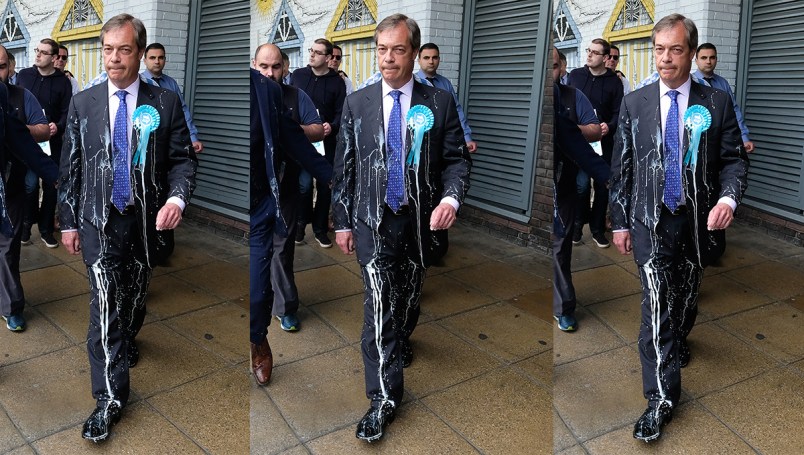For those of you who’ve been trying to make sense of the EU elections and especially the EU elections in the UK, I wanted to add a few thoughts. First, the results are a bit muddled and contradictory. But they’re also mired in a fair amount of misunderstandings and misleading spin and gloss. Rightwing parties did do well in a lot of EU countries. But in most they either underperformed expectations or fell from previous highs in the 2014 EU election. The big story overall is the decline or in some cases near collapse of the traditional parties of government – center-right and center-left – in lots of countries, particularly heartland EU countries like Germany, France, the UK, et al.
Let’s focus in on the UK.
The wild, eye-popping result is that the “Brexit Party”, founded only months ago and now led by rightist provocateur Nigel Farage, got the most votes almost everywhere in England outside of London and the most seats overall – 29 seats and 31.6% of the vote, far more than the Tories and Labour combined.
But the picture looks very different if you step back a bit. There were five parties running as Remain parties – i.e., pro-EU, anti-Brexit. If you add up the Remain parties they got just over 40% of the vote compared to just under 35% for the hard Brexit parties (Farage’s new party and UKIP, his old party). The remaining 23% or so went to the Labour (14.1%) and Tories (9.1%), both of which are divided on Brexit, though Labour leans more Remain and the Tories more Leave. (The big party winners on the Remain side were the Liberal Democrats and the the Greens.)
One very reasonable way to look at these numbers is that the election was about Brexit and neither of the two traditional parties of government took a clear stand on the issue. Both saw their support fall precipitously. Parties with clear Remain or Leave positions took the overwhelming majority of the votes (about 75%) and a clear majority of those went to Remain parties.
An analogue to Trumpism is that Brexit support seems to be clearly a minority position in the UK (albeit a very large minority). Supporters of “no-deal Brexit” are definitely a minority. Yet they make up a large enough percentage of the electorate and are unified and coherent enough that they can drive the political agenda, even if they can’t necessarily carry their core policy to fruition.






